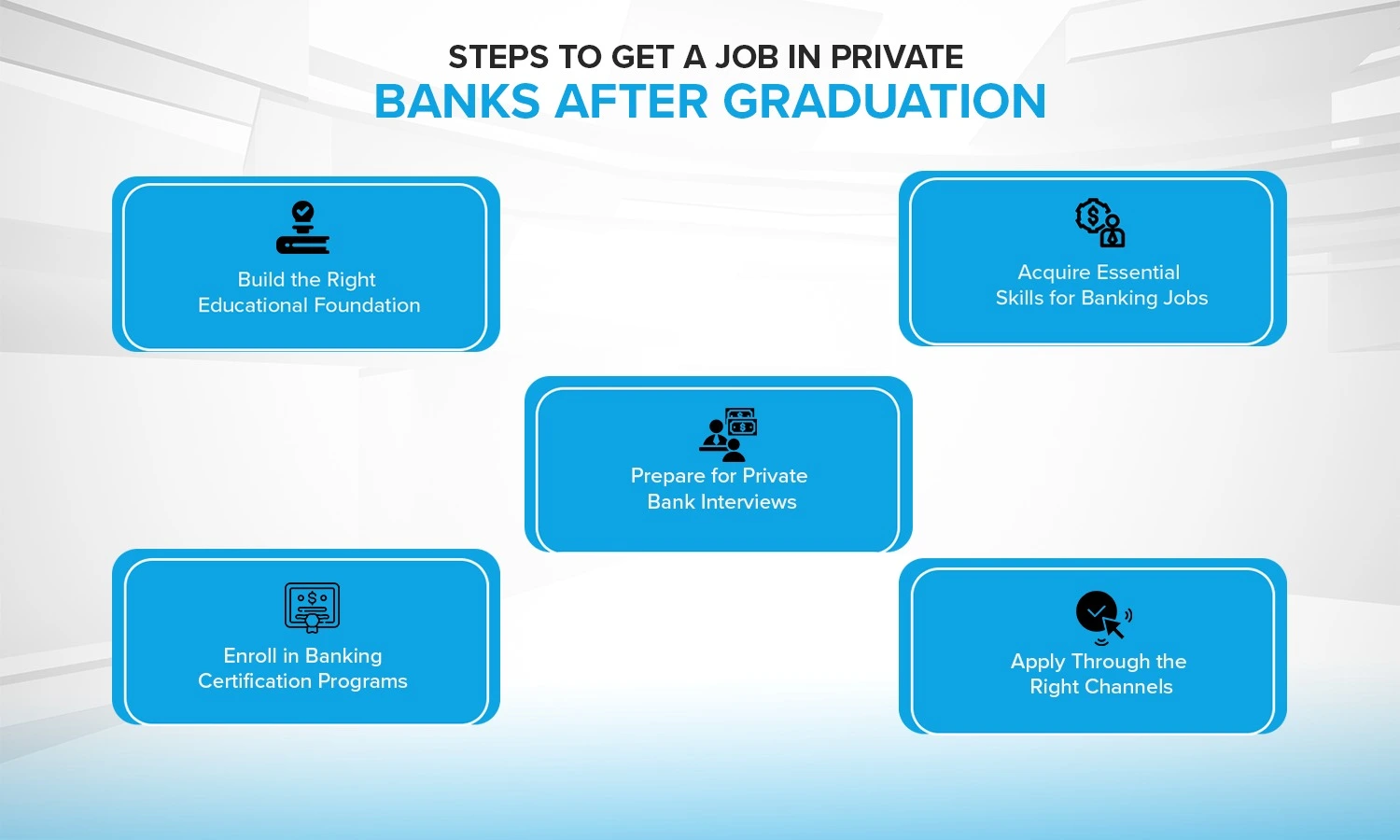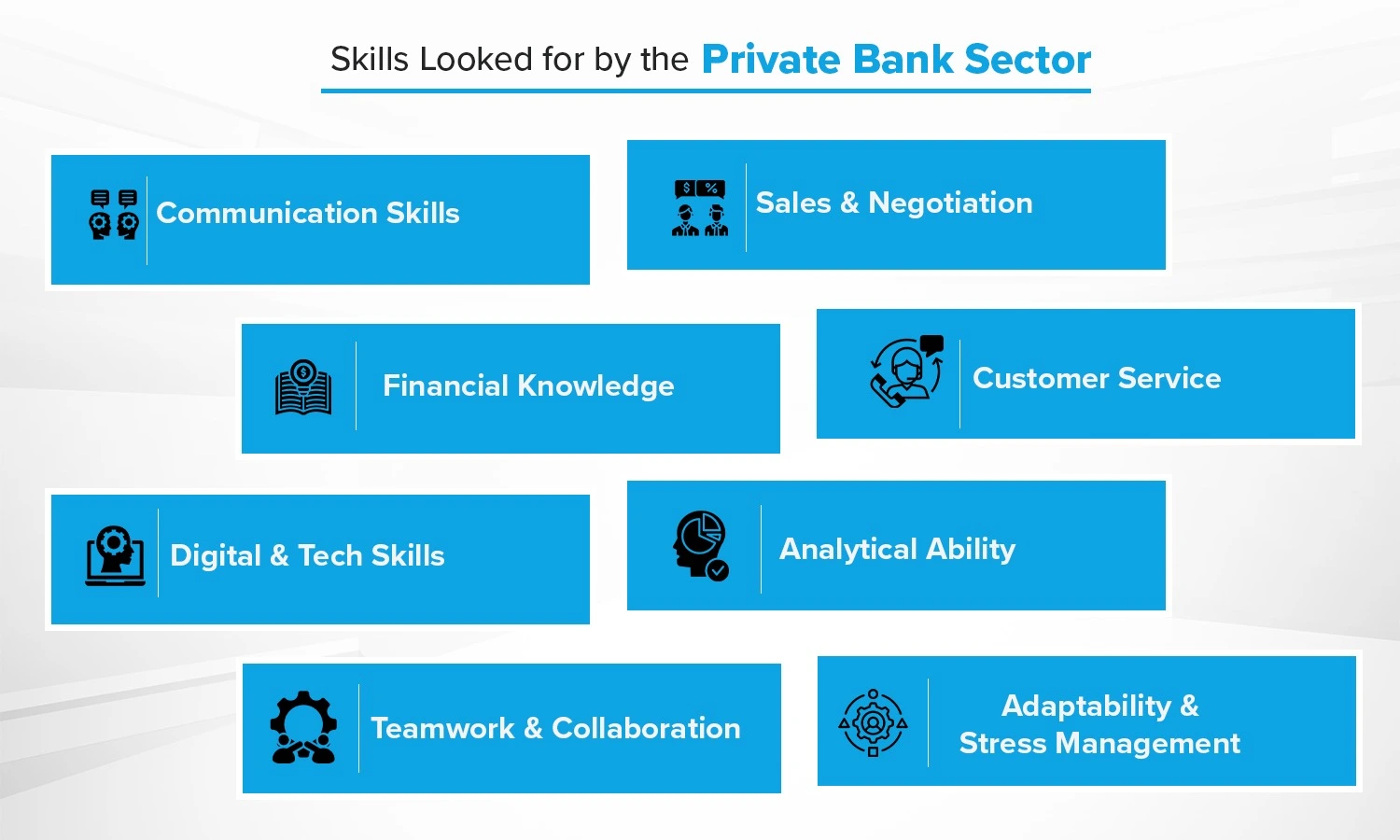Private banks are among the top career destinations for graduates today. They offer financial stability, professional exposure, and opportunities for advancement. Many students ask: how to get job in private banks right after college? The answer lies in preparing early, building the right skills, and applying through proper channels. With a focused approach, you can begin a rewarding private bank career immediately after graduation.
Why Choose a Career in Private Banks After Graduation?
A job in private banks after graduation ensures steady income, professional respect, and long-term growth. Unlike some industries, the private bank sector has structured career paths and clear role divisions—such as customer service, credit, operations, and sales. With digital banking expanding rapidly, private banks continue to hire young graduates who can adapt and deliver results.
Steps to Get a Job in Private Banks After Graduation

Getting into banking requires careful planning. Here are the main steps:
- Build a strong educational foundation.
- Gain essential skills.
- Enroll in certification programs.
- Apply through reliable channels.
- Prepare thoroughly for interviews.
These steps will guide you from being a graduate to securing your first role in a bank.
1. Build the Right Educational Foundation
The first requirement is meeting the eligibility for private bank jobs. Most banks hire graduates with a recognized degree. While commerce and economics are preferred, banks also welcome candidates from other streams who show aptitude in finance, communication, and IT. If you’re still studying, focus on subjects like accounting and business communication to gain an advantage. These all help in understanding in how to get job in private banks.
2. Acquire Essential Skills for Banking Jobs
Private banks value skills more than just degrees. Communication, analytical thinking, numerical accuracy, and digital literacy are highly sought-after. Teamwork and customer service ability also play a big role. Strengthening these skills ensures you’re job-ready from day one, by understanding in how to get job in private banks
3. Enroll in Banking Certification Programs
Graduates with specialized training stand out in a crowded market. Certifications in retail banking, risk management, or fintech increase your chances of selection. Institutions such as SRM School of Banking provide placement-assured programs combining theory with on-the-job exposure. These programs save time and connect you directly with recruiters.
4. Apply Through the Right Channels
Instead of random applications, use structured approaches:
- Campus recruitment drives.
- BFSI-focused job portals.
- Direct career pages on private bank websites.
- Referrals via training institutions.
This organized method improves your visibility to recruiters.
5. Prepare for Private Bank Interviews
Once shortlisted, interviews test both knowledge and confidence. Expect questions about banking basics, your degree background, and customer-handling scenarios. Practice clear communication and highlight your adaptability. Joining mock interviews through training institutes can boost performance, which can help in the process of how to get job in private banks.
Key Mistakes to Avoid while Pursuing a Career in Private Banks
Many graduates fail due to avoidable errors like these while pursuing a private bank career:
- Submitting generic resumes.
- Ignoring interview etiquette.
- Lacking awareness of current industry trends.
- Neglecting soft skills development.
Avoiding these mistakes helps you stand apart from other applicants.
What are some of the skills looked for by the private bank sector?

The private bank sector looks for candidates with numerical ability, customer service mindset, IT proficiency, and professional communication. Banks prefer individuals who can manage clients effectively while adapting to fast-changing digital systems, helping students or people understand how to get job in private banks.
Join Training Programs Offered by Private Banks
Some private banks run their own training academies or tie up with institutions. These programs are tailored to bank-specific roles, covering everything from branch operations to sales. For graduates who want a quick entry, these training programs are one of the most effective routes.
Your Banking Career Starts Here – Apply Now
Conclusion
Understanding how to get job in private banks is about more than just applying, it’s about preparation and the right guidance. From building your educational base to enrolling in certification programs, each step matters. With structured support from institutes like SRM School of Banking, you can smoothly transition from graduation to a stable career in private banking.
FAQs
Yes, graduates from all streams are eligible. Those with banking-relevant skills or certifications have higher chances of selection.
The career growth path usually begins with entry-level associate roles, leading to managerial and leadership positions as experience grows.
Very important. Since roles are customer-focused, effective communication helps build trust and improves client service.
Yes. Many banks hire freshers and provide structured training. Certifications make you a stronger candidate.
Banks like HDFC, ICICI, Axis, and Kotak Mahindra actively hire graduates through recruitment drives and training programs.


